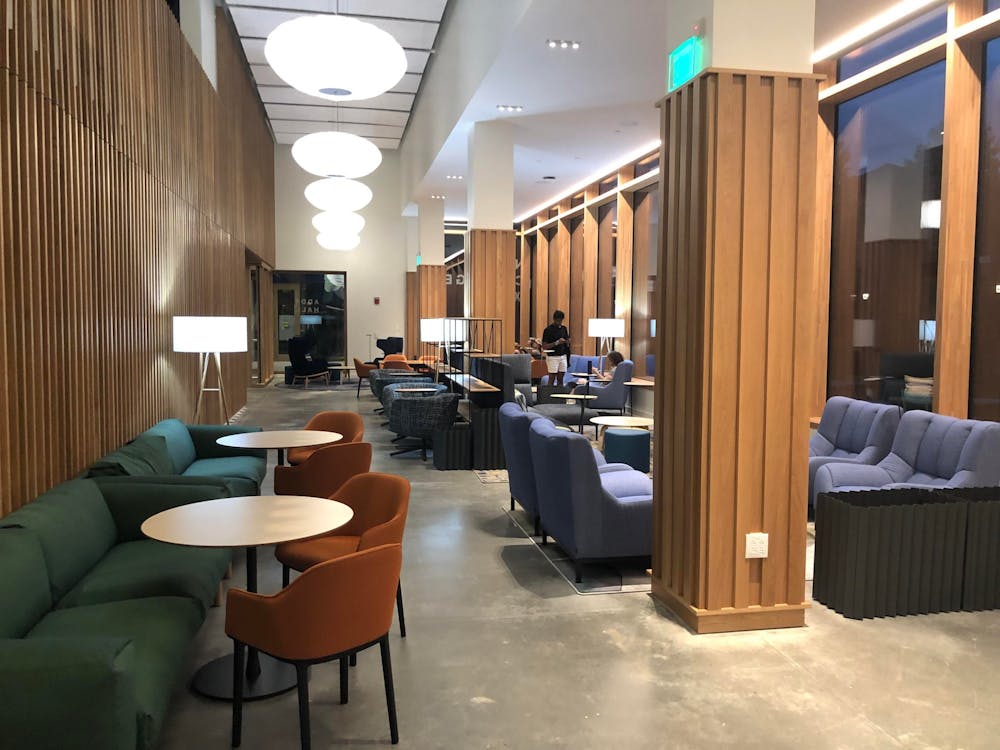Technology will play an increasingly important role in the essential public policy areas of defense, transportation, and the economy, noted former Deputy United States Chief Technology Officer and University Computer Science Professor Ed Felten in a talk on Feb. 13.
Felten’s talk explored the many ways that new technologies, such as machine learning, self-driving vehicles, and workforce automation, will impact policy decisions and ultimately people’s lives in the future. He drew on examples from his own 20-month experience working under United States Chief Technology Officer Megan Smith in Washington, D.C.
“The team’s main job was to advise the President and his senior advisors on policy issues relating to technology,” Felten said.
He emphasized the differences between his role as a technology policy advisor and the roles of other White House workers in IT, social media outreach, and hardware usage.
“We were policy advisors, so our job was to make words, to give advice, and to be instigators,” he added.
Felten noted that he and his colleagues in the Office of Science and Technology Policy had three primary missions: to increase the presence of technology experts in government;to make sure public policy decisions were informed by technology experts, and to raise the capacity of the nation to build, use, and educate people on technology.
“Nowadays, many decisions that don’t seem to be about technology have an important technology angle,” he said.
Felten demonstrated this point by offering examples from transportation policy and military affairs. In one instance, he noted the case of self-driving cars, which have the potential to avert thousands of driver-related automobile-related accidents each year, and raised questions as to how technology policy can work to increase these cars' prevalence.

“The policy question is not whether we want a future with self-driving cars, because we do,” Felten said. “The question is how do we get there? How do we get to a future where self-driving cars are affordable, legal, and safer than human-driven cars? And how do we get there as soon as we can, because people are dying on the highways every day.”
According to Felten, similar policy issues which rely heavily on technological issues arise in military affairs, such as the use of drones.
“As automated weapons become technologically feasible, we need to figure out how to reconcile our goal of having an effective military," he said, "a military that protects American interests and democratic values, and how to reconcile that with our humanitarian obligations."
In policy areas relying on related technologies, such as artificial intelligence, machine learning, and automation, Felten noted that implementing new innovations will have far-reaching consequences for diverse groups, especially as automation becomes advanced enough to replace mental and non-standard labor roles. However, Felten argued that the benefits of artificial intelligence and automation outweigh the costs, as automation raises productivity and our standard of living. He added further that the economy is relatively dynamic in terms of job replacement.

“Technology is driving a lot of the changes that are happening in our society, and it shows up in so many of our most important policy challenges,” Felten added. “When important decisions are being made, when policy directions are being set, we need to have technical expertise in the room.”
Felten’s talk was attended by a full house of University students and listeners from the greater Princeton community. The talk was also recorded and live-streamed online via Media Central Live.
The lecture, entitled “West Wing, Veep, or House of Cards? Policy and Technology in the Obama White House,” was delivered on Feb. 13 at 4:30 p.m. in Lecture Hall 104 of the Computer Science Building. It was sponsored by the Center for Information Technology Policy as part of the CITP Lecture Series.







